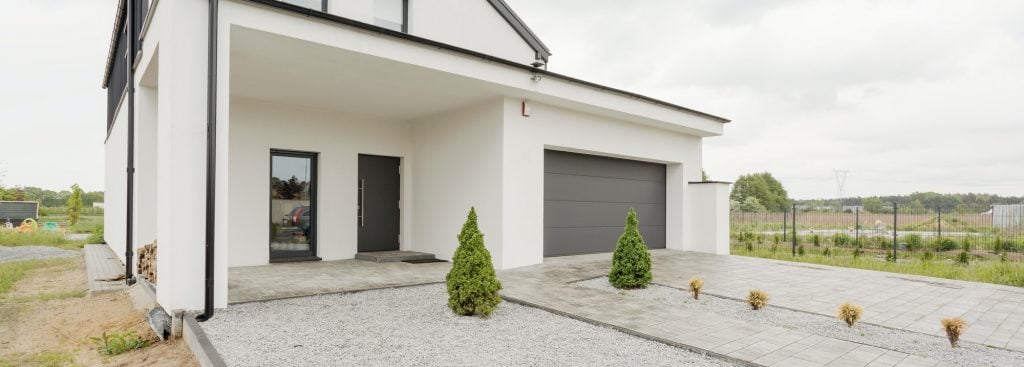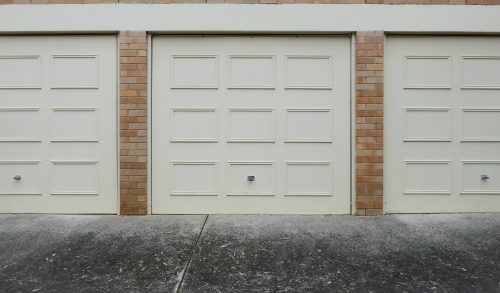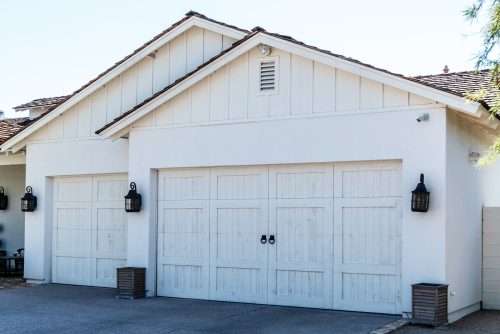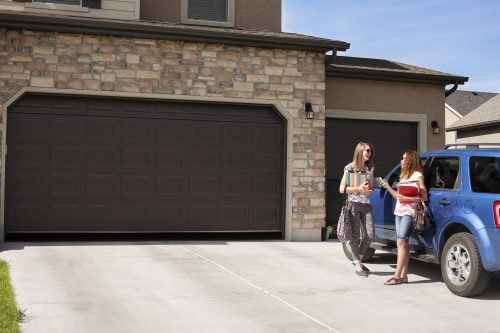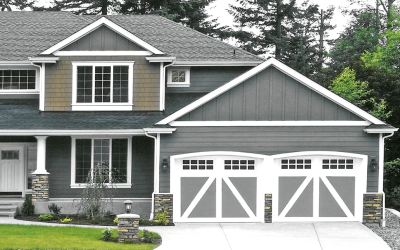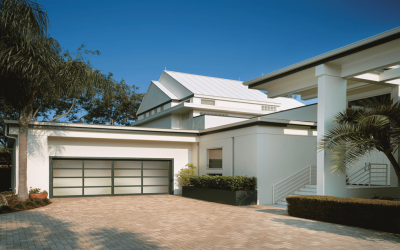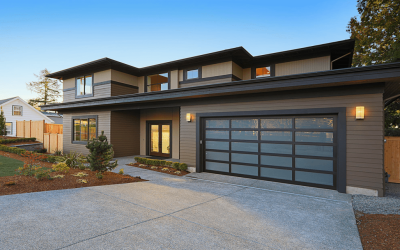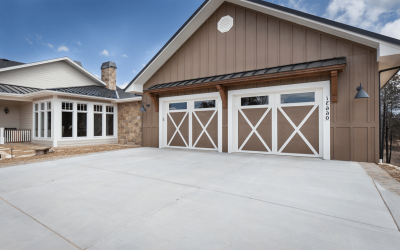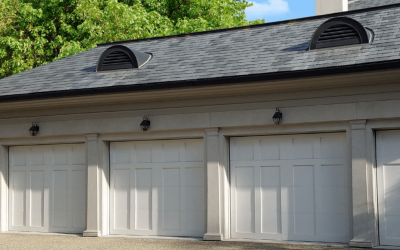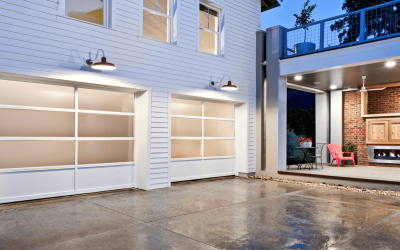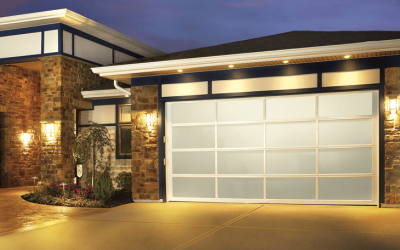Garage doors are an essential feature of any home, providing a secure and convenient entry point for vehicles and other items. Yet not every garage door is made equal. Insulated garage doors are a popular choice for homeowners who want to increase energy efficiency, climate control, durability, noise reduction, and cost savings.
Insulated garage doors are constructed with two layers of steel or aluminum with insulation material sandwiched between them. The insulation helps to keep heat in during the winter and out during the summer, making them an ideal choice for homeowners who want to improve energy efficiency and climate control. This article will explore the benefits of insulated garage doors and provide tips on how to choose the right one for your home.
Energy Efficiency:
One of the primary benefits of insulated garage doors is their ability to improve energy efficiency. Insulated doors provide a barrier to the outside temperature, reducing heat loss during the winter and heat gain during the summer. This means that the garage stays at a more consistent temperature, reducing the need for heating and cooling, and ultimately lowering energy costs.
Insulated garage doors are significantly more energy-efficient than non-insulated doors. According to Energy Star, insulated doors can reduce heat loss by up to 70%, resulting in significant energy savings. In contrast, non-insulated doors provide no insulation value, meaning that the garage is exposed to outside temperatures, making it more difficult and expensive to regulate.
Climate Control:
Garages are often exposed to extreme temperatures, making it difficult to regulate the temperature inside. Insulated garage doors help to provide climate control, making the garage a more comfortable and usable space year-round.
Insulated garage doors provide benefits in both hot and cold climates. In colder climates, insulated doors help to retain heat and keep the garage warm, making it more comfortable to work in. In hotter climates, insulated doors help to keep the garage cool, reducing the need for air conditioning and making the garage a more pleasant space to spend time.
Insulated garage doors provide a significant impact on the garage’s overall comfort and temperature control. The insulation helps to reduce temperature fluctuations, making the garage a more stable and comfortable space. In addition to that, the insulation provides a sound barrier, reducing outside noise and making the garage a quieter and more relaxing environment.
Durability:
Generally speaking, insulated garage doors are stronger than non-insulated ones. The insulation helps to prevent wear and tear, protecting the door from damage and prolonging its lifespan.
The insulation in an insulated garage door provides an extra layer of protection against the elements, protecting the door from damage caused by extreme temperatures, moisture, and pests. The added strength provided by the insulation also helps to prevent dents and dings, increasing the door’s overall durability.
Insulated garage doors typically have a longer lifespan than non-insulated doors. This is due to the added protection provided by the insulation, which helps to prevent damage and wear and tear. In contrast, non-insulated doors are more susceptible to damage and may need to be replaced sooner.
Insulation helps to improve the door’s resistance to wear and tear by providing an additional layer of protection against the elements. This means that an insulated garage door is less likely to warp, crack, or break, even with frequent use.
Noise Reduction:
Another benefit of insulated garage doors is their ability to reduce noise levels. The insulation helps to provide a sound barrier, reducing the amount of noise that enters and exits the garage.
The insulation in an insulated garage door helps to absorb sound waves, reducing the amount of noise that enters and exits the garage. This makes the garage a quieter space, reducing noise pollution and making it a more comfortable place to work or spend time.
Insulated garage doors are significantly better at reducing noise levels than non-insulated doors. Non-insulated doors provide little to no noise reduction, while insulated doors provide a significant sound barrier.
Reducing noise levels in the garage provides several advantages. It makes the garage a more comfortable and peaceful space, reducing stress and improving mental health. Along with that, it reduces noise pollution, making the surrounding area a more pleasant place to live.
Cost Considerations:
While insulated garage doors are typically more expensive than non-insulated doors, they provide significant cost savings over the long term.
Insulated garage doors are generally more expensive than non-insulated doors, with prices ranging from $800 to $5,000. In contrast, non-insulated doors typically cost between $400 and $1,500.On the bright side, the long-term energy savings and increased durability of insulated doors can offset the initial cost.
Insulated garage doors provide significant long-term cost savings by reducing energy consumption and increasing the door’s lifespan. This means that homeowners can save money on energy bills and avoid the cost of frequent repairs or replacements.
Tips on How to Choose an Insulated Garage Door that Fits Your Budget:
When choosing an insulated garage door, it’s important to consider your budget. Look for doors with a high R-value (a measure of insulation value) that fit within your price range. You would also need to consider the door’s material, style, and features to find a door that meets your needs and budget.
R-Value:
The R-value is a measure of insulation value, and it’s important to choose a garage door with a high R-value to maximize energy efficiency and reduce heating and cooling costs. The quality of the insulation increases with the R-value. Look for doors with an R-value of at least 12 for the best results.
Material:
Garage doors can be made from several materials, including steel, aluminum, wood, and fiberglass. Each material has its advantages and disadvantages in terms of insulation, durability, and cost. Steel doors are the most popular choice and are generally the most affordable.But, they are not as insulating as other materials. Aluminum doors are lightweight and durable but also not as insulating as other materials. Wood doors provide excellent insulation but can be costly and require regular maintenance. Fiberglass doors are durable and low-maintenance but can be expensive.
Style:
Garage doors come in several styles, including traditional, carriage house, contemporary, and more. The style you choose will depend on your personal preference and the style of your home. Keep in mind that some styles may be more expensive than others.
Features:
Consider any additional features you may want in your garage door, such as windows, decorative hardware, or smart technology. These features can add to the cost of the door, so consider your budget carefully.
Size:
Make sure to measure your garage door opening accurately to ensure that you purchase the correct size door. An improperly sized door can lead to gaps that reduce insulation and increase energy costs.
Installation:
Consider the cost of installation when budgeting for an insulated garage door. The cost of installation can vary depending on the complexity of the installation and the location of the garage.
Manufacturer:
Choose a reputable manufacturer with a track record of producing high-quality, energy-efficient garage doors. Look for manufacturers that offer warranties on their products to ensure that you’re getting a quality product.
Long-term Cost Savings:
While insulated garage doors may be more expensive upfront, they provide significant long-term cost savings by reducing energy consumption and increasing the door’s lifespan. Consider the long-term savings when budgeting for an insulated garage door.
All in all, choosing an insulated garage door that fits your budget requires careful consideration of the door’s R-value, material, style, features, size, installation, manufacturer, and long-term cost savings. By taking the time to choose the right door, you can create a more comfortable and sustainable garage space while also saving money over the long term.
Final Words
Insulated garage doors are becoming increasingly popular among homeowners due to their numerous benefits. If you’re looking to upgrade your garage door, it’s essential to consider an insulated garage door as an option. It provides not only energy efficiency but also improved climate control, durability, noise reduction, and cost savings.
At Veteran Garage Door, we offer a wide variety of insulated garage doors to meet your specific needs and budget. We have doors available in various styles, materials, and insulation ratings to provide you with the best options possible. Our experienced technicians can help you find the perfect insulated garage door that fits your preferences and budget. We also offer affordable installations with some of the best warranties available in the industry.
Veteran Garage Door Repair
3415 Custer Rd #103
Plano, TX
75023
(972) 432-5695


